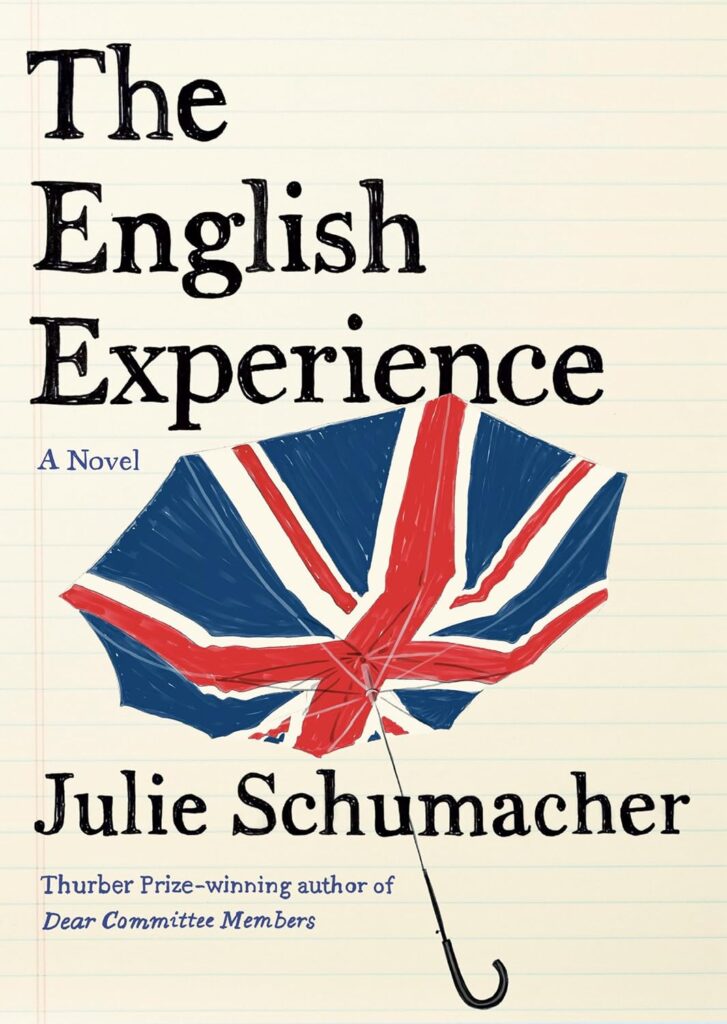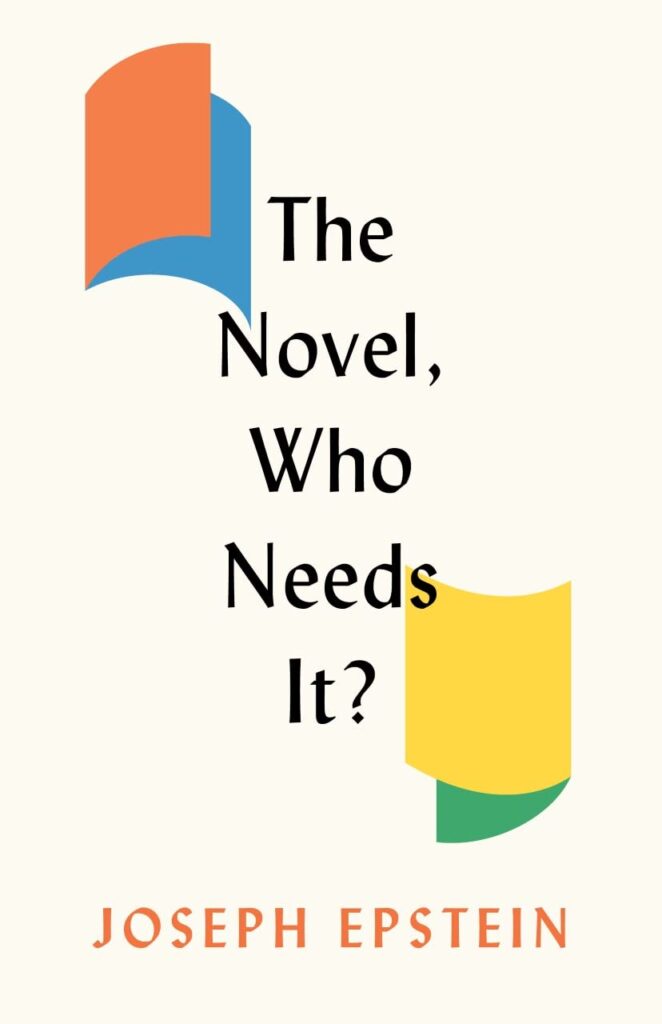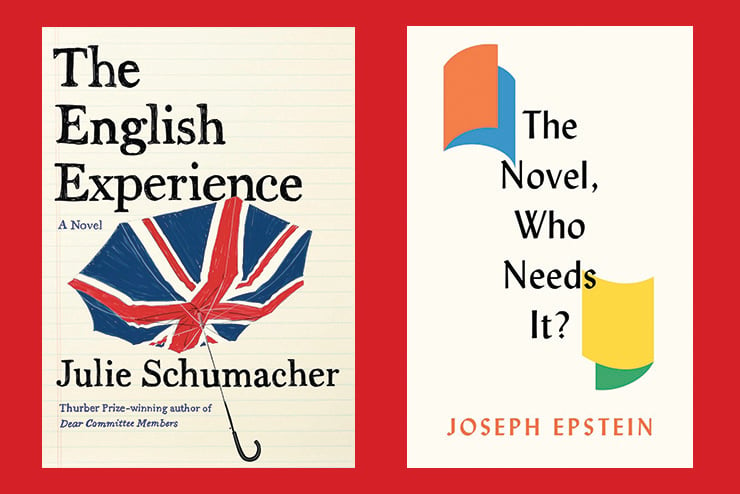
The English Experience, by Julie Schumacher (Doubleday; 227 pp., $27.00). A novel should provide an illusion, the very feel of experience. Julie Schumacher’s latest will make you feel what it’s like to be an unhappy American professor of English, in late middle age, sent to London to run a three-week winter study program. Or you may identify with his 11 students, breezy, ill-prepared, some basket cases; one with a skin disease is a pariah and pitiful.
Poor Jason Fitger! Although of good will, he is a very reluctant program director. As head of the English department at fictional Payne University in Minneapolis, he is coerced into taking the London job when the provost, after failing to persuade him the assignment is a plum, tells him he’ll have to take the job if he wants “continued budgetary assistance from my office.”
Students of 2023 are not those of yore; that is made clear in the participants’ brief letters of application. Infantilism is the rule; common sense is uncommon; the students are lazy and object to even light work; some can barely write. Most are indifferent to their ignorance, unfocused, unable to grasp what knowledge means. Neuroses, even mental illness, mark several. One is aggressively anti-colonialist. They are too immature to deal well with British ways. Incompatibility and a broken romance complicate matters. Their short written assignments and final papers (prose, a “poem,” a list, a blank sheet) will make you cringe.
Fitger himself is not the most well-adjusted member of his motley crew. Though divorced, he is emotionally dependent upon his former wife, a law professor—vain, silly, vegetarian—and their unappealing dog, jointly owned, but which she holds for ransom. In England, he has various misfortunes, including leaks in his miserable lodgings and an injury from falling down the stairs.
Study-abroad novels are numerous; teaching-abroad tales less so. Two excellent examples come to mind, however: Vladimir Nabokov’s Pnin (1957) and David Lodge’s Changing Places (1975). The English Experience updates the situation by two or three generations, reflecting significant cultural changes that have occurred since those earlier works were written.
Schumacher makes a humorous, sometimes farcical whole of the plot’s loose threads, and in the mopping-up she offers a satisfying resolution. One must tolerate her hyperbole. Haven’t we all exaggerated in relating an absurd incident or describing a crazy neighbor? Doesn’t the preposterous Falstaff still set the standard—an unlikely, yet authentic comic giant?
(Catharine Savage Brosman)

The Novel, Who Needs It?, by Joseph Epstein (Encounter Books; 152 pp., $25.99). For those not beholden to the ideologies of race, class and gender, Joseph Epstein ranks as the foremost literary critic of our time. Whereas academic criticism’s baneful dogma has for too long ruined the pleasure of reading, Epstein’s literary essays have enriched the experience immeasurably.
The Novel, Who Needs It? articulates what the attentive reader gets from novels. The novel advances “the truth of the imagination.” Immersion in this truth is the intellectual payoff to readers. While novels vary by type, they capture life’s glory and squalor better than other genres. Readers of Dickens, Waugh, or Conrad will recognize this truth.
Epstein covers the rise and development of the novel in just 152 pages. He both identifies and analyzes the cultural and historical impediments the novel has faced.
One of the foes of the novel is the Internet, which adds a “twitchy, nervous, hectic” aspect to life. In sharp contrast, reading books requires concentration, reflection, and stillness. The capacity to follow—let alone to engage with—a sustained argument in print is now gravely enfeebled. The Internet has robbed the sheer joy of getting lost in a novel from countless young readers.
Therapeutic culture is “perhaps the most subtly pernicious enemy of the novel,” Epstein writes. Invoking Philip Rieff’s 1966 book, The Triumph of the Therapeutic, Epstein shows how the pursuit of self-esteem has dethroned the quest for strong character. This radically diminished vision is antithetical to the material that serious novelists need for success. The emaciated moral and aesthetic quality of much contemporary fiction derives from the metastasis of the cult of self-esteem throughout Western culture.
Epstein is right that readers of novels want to learn things—to be a bit “a bit wiser about the world.” Reading great novels will fulfill this admirable hope. For those looking to improve themselves, Epstein presents lists of writers and novels, all thankfully devoid of political judgment. Contrary to the charlatans in the academy, he lavishes high praise on the Russian and Victorian masters. He fights convention in his estimation of Willa Cather as the preeminent 20th-century American novelist. He is appropriately cool toward Philip Roth, John Updike, and Norman Mailer, and their cultish followers.
The novel is still the guide to human nature, despite the endlessly proliferating technological alternatives.
(Gregory J. Sullivan)

Leave a Reply